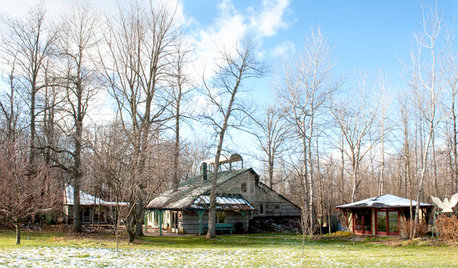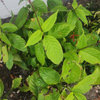when is organic not really organic
joeworm
10 years ago
Related Stories

ORGANIZINGHow to Keep Your Home Neat When You Don't Have a Mudroom
Consider these 11 tips for tackling the clutter that's trying to take over your entry
Full Story
LIFEWhen You're Suddenly Solo at Home
Whether you stay in a home alone or move on, these strategies from professional organizers can help you with the process
Full Story
LIFEYou Said It: ‘Life Is Better When the House Is Clean’ and More
Highlights from the week include great advice for a clean, organized and happy 2015
Full Story
ENTERTAININGHow to Stay Sane When Hosting Christmas
We offer a dozen tips for getting organizing and enjoying the big day
Full Story
ORGANIZINGThe Organized Home: Shelves, Cupboards and Closets
Neat as a pin is as easy as pie when you take take home organizing one step at a time. From pantry to office, we'll help you get there
Full Story
CLOSETSOrganize a Kids' Closet Lickety-Split
Monsters have nowhere to hide and cleanup is a piece of cake when you organize the storage space in your child's closet with these tips
Full Story
SHOP HOUZZShop Houzz: Organize Your Accessories
It’s easy to get dressed when your jewelry, watches, ties and glasses are just where you want them
Full Story0

CURB APPEALWhen to Paint Your House Brown
Nature loves brown, from rich soil to sunlit sand, and so do home exteriors with a traditional or Craftsman bent
Full Story
HOUSEKEEPINGWhen You Need Real Housekeeping Help
Which is scarier, Lifetime's 'Devious Maids' show or that area behind the toilet? If the toilet wins, you'll need these tips
Full Story
KITCHEN DESIGNCooking With Color: When to Use White in the Kitchen
Make sure your snowy walls, cabinets and counters don't feel cold while you're riding white's popularity peak
Full Story








carolb_w_fl_coastal_9b
greenepastures
Related Professionals
Danbury Landscape Architects & Landscape Designers · Elwood Landscape Architects & Landscape Designers · Lowell Landscape Architects & Landscape Designers · Brentwood Landscape Contractors · Concord Landscape Contractors · Fort Mill Landscape Contractors · Lakewood Landscape Contractors · Marlborough Landscape Contractors · Nanuet Landscape Contractors · Portage Decks, Patios & Outdoor Enclosures · Provo Decks, Patios & Outdoor Enclosures · Redlands Decks, Patios & Outdoor Enclosures · Towson Decks, Patios & Outdoor Enclosures · Oregon City Siding & Exteriors · Springfield Siding & Exteriorspnbrown
Tiffany, purpleinopp Z8b Opp, AL
carolb_w_fl_coastal_9b
Tiffany, purpleinopp Z8b Opp, AL
pnbrown
carolb_w_fl_coastal_9b
Tiffany, purpleinopp Z8b Opp, AL
pnbrown
shuffles_gw
pnbrown
Tiffany, purpleinopp Z8b Opp, AL
pnbrown
writersblock (9b/10a)